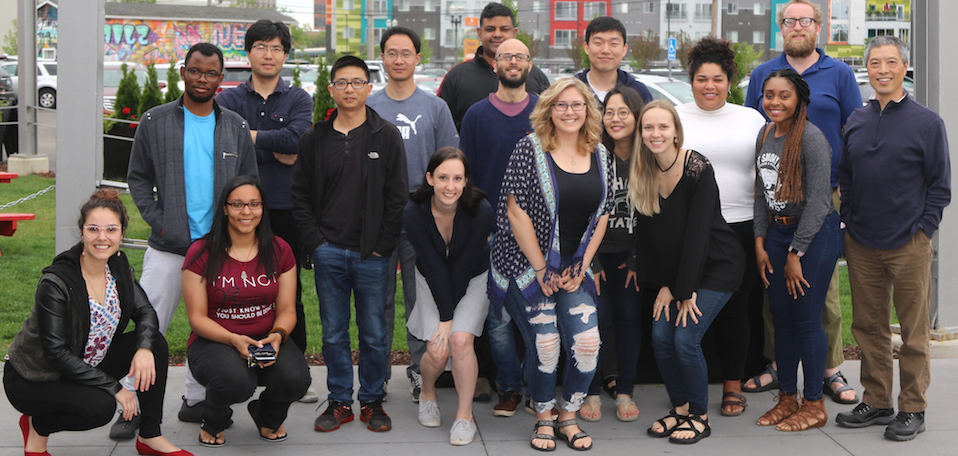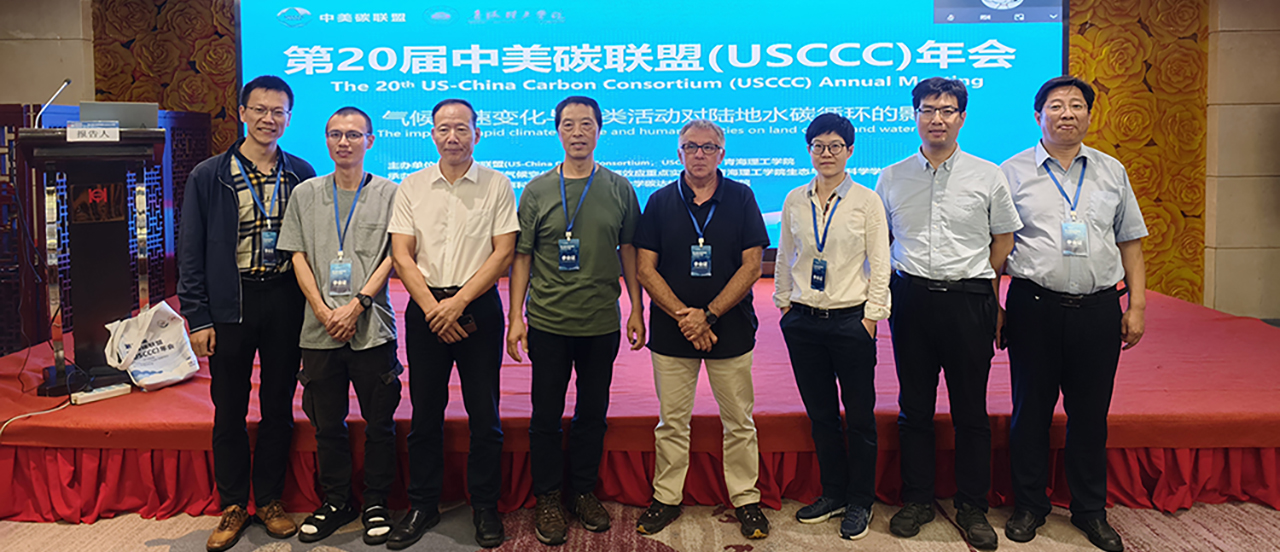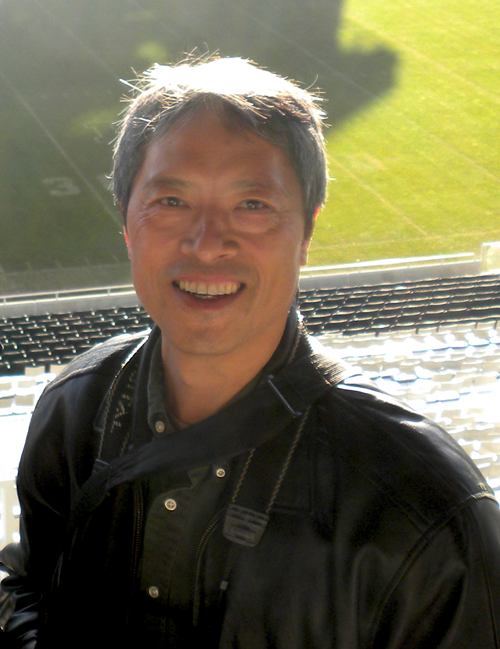
Jiquan Chen
Professor
E-Mail: jqchen@msu.edu |
Phone: 517-884-1884
A native of Shanxi in Northern China, Dr. Chen received his undergraduate education
in grassland ecology (Inner Mongolia University), MS in forest ecology (Chinese Academy
of Sciences), and PhD in ecosystem Analysis (University of Washington). His postdoc
training was in the stream ecology and ecosystem management. He was a Bullard
Fellow at Harvard University (1999-2000). He was on the faculty at Michigan Tech
University (1993-2001) and University of Toledo (2001-2014).
His research and academic instruction programs are on ecosystem processes and their
interactive feedbacks to the biophysical and human activities, including community ecology
to 3-D canopy structure, forest fragmentation, edge effects, riparian zone, conservation
biology, landscape ecology, and micrometeorology. His current research lies in the
coupled effects of global climate change and human activities on terrestrial ecosystems,
global change ecology, bioenergy, and carbon/water fluxes. He will be teaching
special topics on coupled human and natural systems, micrometeorological instrumentation & measurements, image processing and GIS, and global change science.
He is a fellow of the
American Association for the Advancement of
Science (AAAS, 2011) and a fellow of
Ecological Society of America (ESA, 2014).
Dr. Chen is also the Editor-in-Chief for "Ecological Processes" (SpringerNature) and for two book series: 1) Landscape Ecology
(Springer, 2014-2021); and 2) Ecosystem Science and Application –ESA (HEP & MSU Press ).
He enjoys Thai Chi practice and Buddha Meditation. He is also a member of the
Ecology, Evolutionary Biology, and Behavior (EEBB)
Graduate Program and the Environmental
Science & Policy Program (ESPP).
Current Members

Jie Dai
Research Associate
Dr. Dai is a broadly trained geographer interested in ecosystem processes and landscape ecology. His overall research goal involves understanding, envisioning, and conserving earth systems in the context of global climate change and socioeconomic developments. Specifically, he is interested in the use of geospatial techniques for biospheric, conservation and resource management applications, with special attention to terrestrial ecosystems. He integrates geographic information science (GIS), field-based observations and modeling to examine human-environment interactions across different scales.
Dr. Dai received his PhD in Geography from the Joint Doctoral Program (JDP) between San Diego State University (SDSU) and University of California, Santa Barbara (UCSB). Before joining the LEES Lab, he was a postdoctoral research scholar in the Center for Global Discovery and Conservation Science (GDCS) at Arizona State University (ASU).

Nurul Mujahid
Doctoral Student
E-Mail: mujahidn@msu.edu
I am Nurul Mujahid, a Ph.D. student at the School of Planning, Design, and Construction at Michigan State University, with research interests in urbanization, sustainable development, land-use and cover change, affordable housing, and real estate. Currently, I am involved in supporting the Landscape, Ecology, & Ecosystem Science Lab in data collection on urban and environmental systems. I hold degrees from the Faculty of Civil Engineering and Planning at the Bandung Institute of Technology (2001) and the School of Public and Environmental Affairs at Indiana University Bloomington (2011). I am registered as a planner with the Ministry of National Development Planning of Indonesia, focusing on water resources, urban & housing, and water supply & sanitation sectors. Additionally, I am a scholarship awardee of the Indonesia Endowment Fund for Education (LPDP), covering the period from 2022 to 2026.
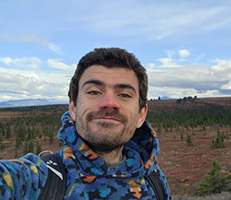
Moriz Steiner
Ph. D. Student
LEES Lab MSU
Moriz is a Crop and Soil Sciences Ph.D. student in the LEES lab pursuing a major in Ecology and a minor in Artificial Intelligence (AI). He is from far Northern Italy, completed his B.Sc. in Animal Sciences from Wageningen University and Research (Netherlands), and his M.Sc. in Wildlife Biology and Conservation from the University of Alaska Fairbanks (United States). His research focuses on spatial predictions of species distributions and forecasts, landscape fragmentation, modeling spatial and temporal impacts of climate change, Big Data, GIS, Machine Learning (AI), heavy metal contamination predictions, and sustainable species conservation and management.
Moriz is also a member of the Climate Crisis Commission, Small Mammal Specialist Group, and Species Survival Commission of the International Union for Conservation of Nature (IUCN). Additionally, he served as a natural site reviewer for the UNESCO World Heritage applications (2024 & 2025). He was also selected to serve as the Project Group leader for two APECS (Association of Polar Early Career Scientists) project groups: Polar Earth Observation Database and Polar Weeks & Antarctica Day. Moriz also serves as an ad-hoc reviewer for a dozen scientific journals on topics related to Ecological Informatics, Machine Learning, Spatial Predictions, Remote Sensing Image Processing, and Species Conservation and Management.
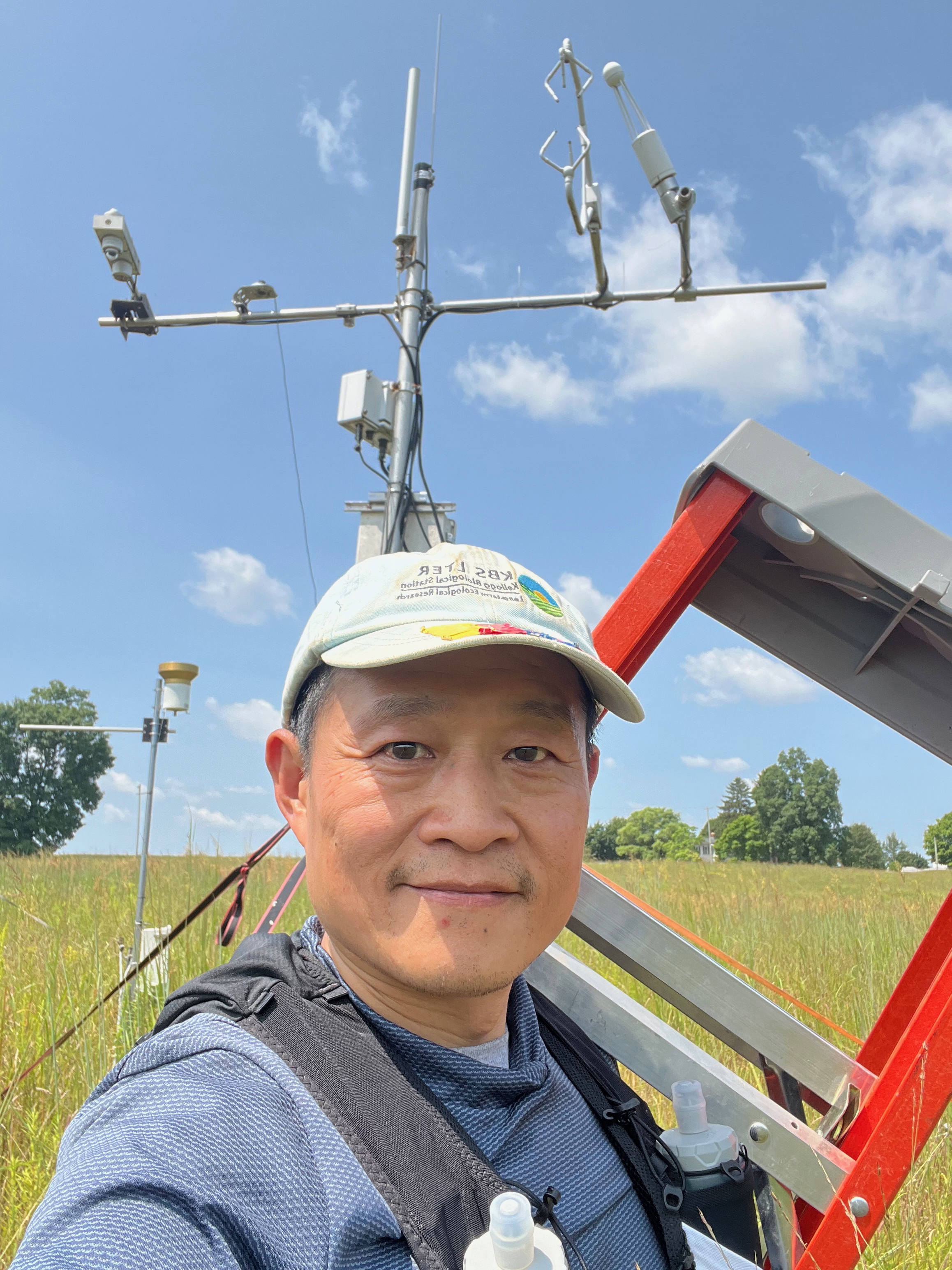
Yahn-Jauh Su
Research Associate
E-Mail: suyahnja@msu.edu
Dr. Yahn-Jauh (YJ) Su is an ecosystem ecologist whose research interest focus on the relationship between carbon fluxes and their biophysical drivers, particular soil respiration, and how the carbon fluxes of ecosystem respond to environmental regime and disturbances, such as climate change, extreme climate events, land use conversion, and other human activities. His research aims to explores the resistance and resilience of the ecosystem and the underlying mechanisms by analyzing trajectory of ecosystem function. This approach helps him understand the successional shifts in ecosystem function over time and their stability in response to environmental impacts across different temporal scales.
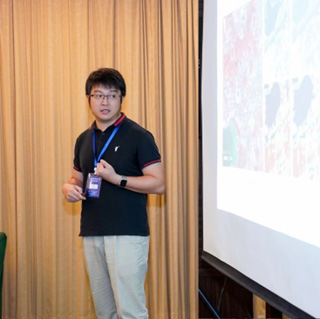
Jin Wang
Research Associate
E-Mail: wangj329@msu.edu
Dr. Wang Jin has a comprehensive academic background in geography and environment science. His research interests focus on two specific topics: 1) remote sensing of urban environments, and 2) quantitative and spatial analysis of coastal regions. His work aims to improve the sensing and understanding of regions characterized by complex and dynamic surfaces, and further provide a reliable scientific basis for the protection and management of these areas. Before joining the LEES lab, Dr. Wang Jin served as a research professor at South China Normal University (2022–2024) and as an assistant professor at the Shenzhen Institute of Advanced Technology, Chinese Academy of Sciences (CAS) (2018–2022). He earned his PhD in environmental science from the Guangzhou Institute of Geochemistry, CAS (2018), and holds a Master's and Bachelor's degree in geography from South China Normal University (2014 and 2011).



